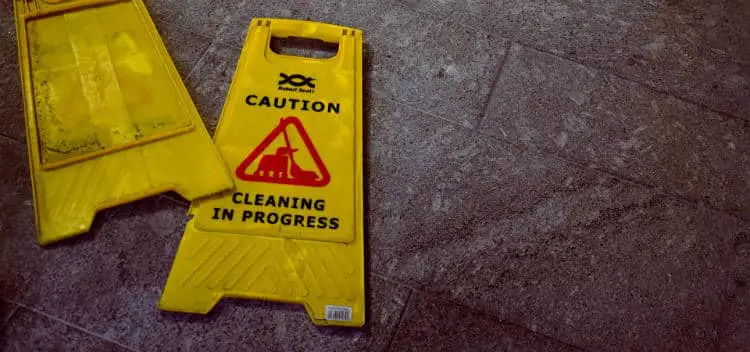
If you were the victim of a slip and fall in the State of New Jersey, you may be wondering if you're entitled to compensation for the various damages you may have suffered.
However, before considering the potential for a settlement in a falling injury claim, it's important to understand the law that applies to these situations. Our NJ premises liability lawyers have put together the following resource covering just this topic.
If your accident and subsequent injuries occurred recently, you may be searching for more urgent assistance. We recommend getting in contact with our experienced legal team as soon as possible to learn about all of the specific legal options at your disposal. Fill out the form on this page or reach out via phone to arrange your free, no-obligation legal consultation.
Premises liability is the section of the law that deals with the responsibility of a proprietor to care for those who are present on their property in any capacity. This includes individuals who are invited onto the property, licensed to be present, and even persons who may be trespassing.
For any premises liability claim to be successful, it must be established that the property owner had some sort of responsibility, or a duty of care, to actively prevent others from being harmed while they are on the property. This responsibility can be explicit as well as implicit; this is to say, no physical contract has to be in place.
A good example of an implicit contract is the one that exists between a gas station owner and a patron. If the patron happens to slip because a spill wasn't cleaned up in a reasonable amount of time, the proprietor can be negligent in their duty to care for the health and safety of the patron even though no contract was ever 'signed'.
It's also important to realize that, while slip or trip and fall claims are the situations in which premises liability is often applied in legal arguments, many other cases can also invoke these laws. For instance, if a patron is harmed in a robbery incident in a bank, the owner of the bank can be found negligent under premises liability regulations if they did not hire some sort of security guard to deter such crimes.
When a premises liability lawsuit is filed in New Jersey, the victim's lawyers will try to prove that an explicit duty of care existed between the plaintiff (their client) and the defendant (the property owner's insurance provider). This is often the first step given the fact that if no duty of care existed, the case is quite likely to fall apart.
As alluded to earlier, the defendant in these lawsuits is not the property owner but rather the proprietor's insurance provider. This is because most property owners are obligated to be covered by some sort of premises liability insurance. If they do not possess this coverage, a legal claim can be made against them personally.
To bolster their own argument, the insurance company will likely use a couple of different legal points that places at least some of the blame on the victim themselves. This can be done by establishing that the victim acted carelessly in some way, whether by not paying attention or by the specific course of action they may have taken. Insurance providers can go as far as arguing that the victim's injury resulted from their (improper) footwear choice.
Why is it important for the defendant in this case to attempt to establish at least partial blame on the plaintiff? Given that New Jersey is a shared fault state, partial fault on behalf of the victim can significantly decrease the compensation that is ultimately paid.
The premises liability legislation of New Jersey states that if more than half of the blame rests on the victim, then they have no case for compensation. However, if the calculated blame on behalf of the victim is less than 50%, then the claim can progress, though the compensation amount is diminished by the percentage of fault that is placed on the victim.
For example, if the plaintiff is found to have 10% of the blame in the incident, then they can only be awarded 90% of the total compensation amount. If the victim was to be awarded a $100,000 financial compensation, they would only receive $90,000 as the incident was 10% their fault.
The information provided above is restricted to broad legal concepts - no final decision regarding your accident should be taken based solely on this reading.
Instead, reach out to our team of experienced legal representatives so that your case may be carefully analyzed to determine all of the avenues for compensation available to you.
Continue Reading
For additional legal resource, visit our next page: https://gardenstatejusticegroup.com/slipping-falling-ice-snow-new-jersey/